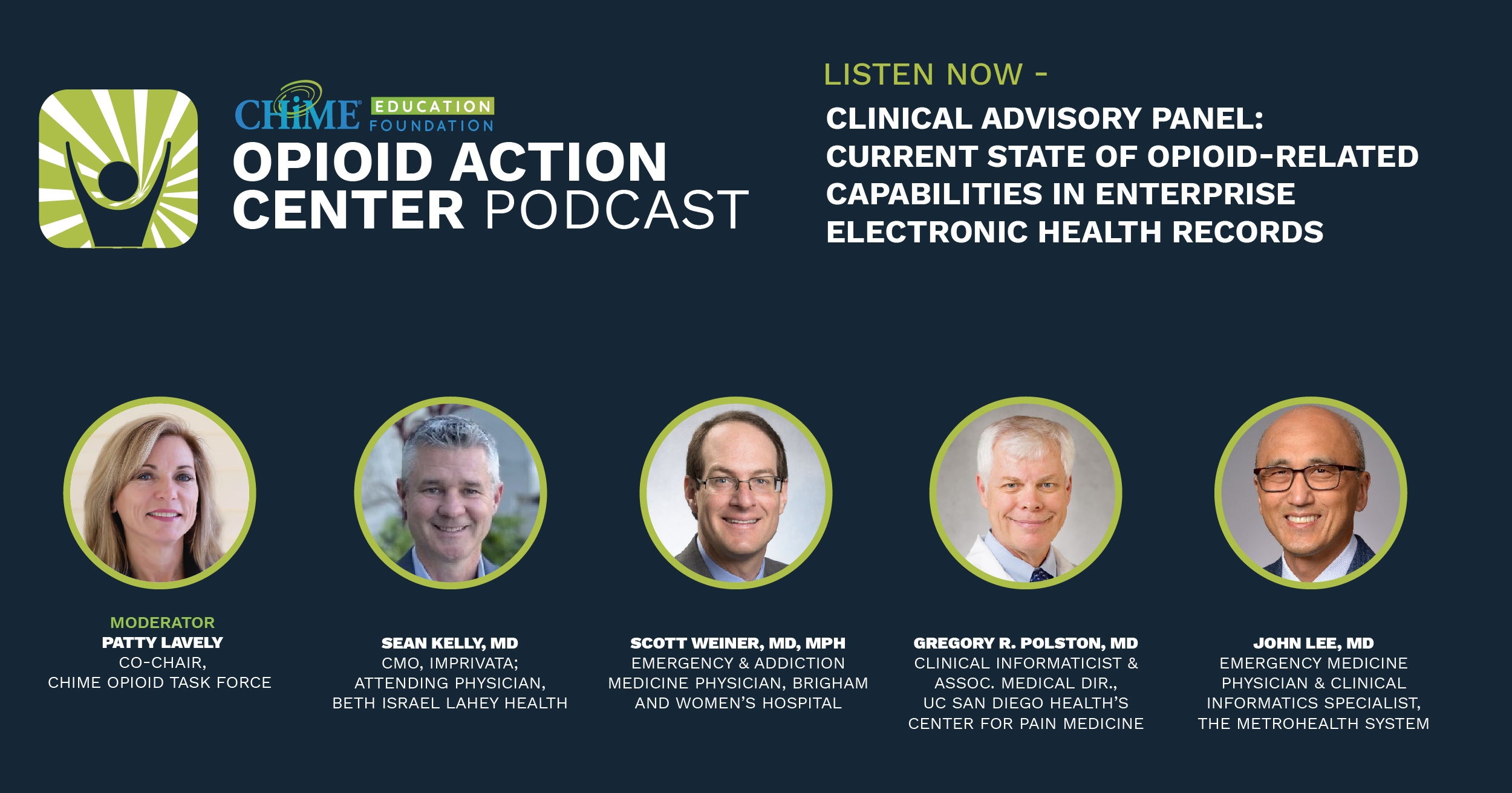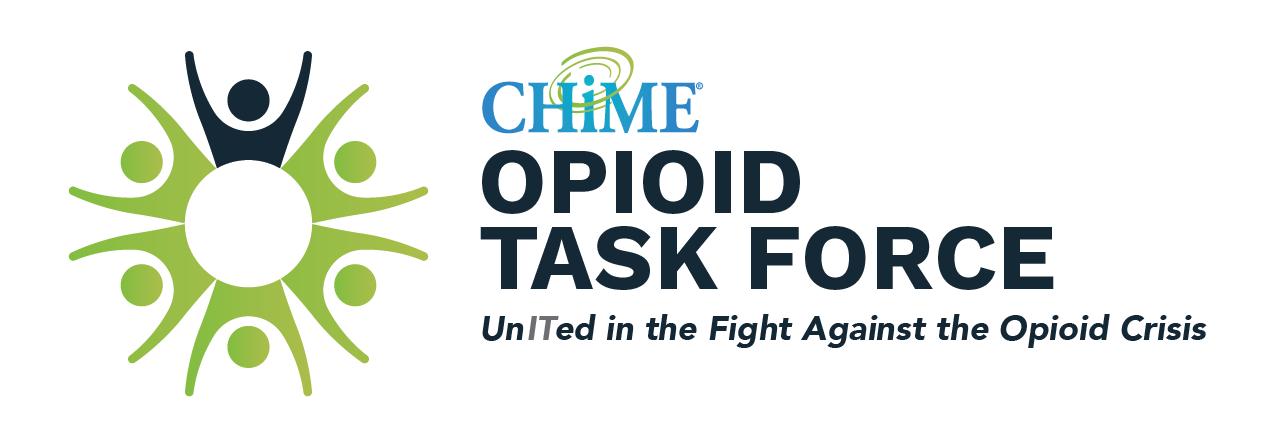
Download Full PDF white paper The Current State of Opioid Related Capabilities in Enterprise EHRs: Availability and Level of Technical Difficulty
A panel discussion led by the Co-chair of the CHIME Opioid Task Force (OTF), featuring members of the Clinical Advisory Subcommittee, on their latest white paper. The paper outlines 13 essential opioid-related capabilities in enterprise EHRs that all health systems should utilize.
A podcast episode highlighting the CHIME OTF’s white paper The Current State of Opioid Related Capabilities in Enterprise EHRs: Availability and Level of Technical Difficulty.
MODERATOR: Patty Lavely
Co-chair, CHIME OTF
CIO Consultant
GUESTS:
Sean Kelly, MD
Chief Medical Officer, Imprivata
Attending physician, Beth Israel Lahey Health
Assistant Professor of Emergency Medicine, part-time, Harvard Medical School
Co-chair, Clinical Advisory subcommittee, CHIME OTF
Scott Weiner, MD, MPH, FAAEM, FACEP, FASAM
Emergency & addiction medicine physician, Brigham and Women’s Hospital
Associate Professor, Harvard Medical School
Co-chair, Clinical Advisory subcommittee, CHIME OTF
Gregory R. Polston, MD
Clinical Informaticist & Associate Medical Director, University of California San Diego Health’s Center for Pain Medicine
Section Chief of the pain service, VA Medical Center La Jolla
Member, Clinical Advisory subcommittee, CHIME OTF
John Lee, MD
Emergency Medicine Physician, Edward-Elmhurst Health Clinical Informatics Specialist, The MetroHealth System
Member, Clinical Advisory subcommittee, CHIME OTF
What You”ll Learn:
- Overview of Essential EHR Capabilities: An understanding of the CHIME OTF’s recommended 13 key opioid-related features in enterprise EHRs that every health system should implement, spanning education, monitoring, alerts, prescribing support, and screening.
- Technical Complexity: Insights into the level of technical effort required to implement each of these capabilities, helping organizations plan resource allocation and timelines.
- Vendor-Specific Variability: Information on how different EHR vendors approach these capabilities, highlighting variations in functionality and the degree of difficulty for customization and integration.
- Impact on Clinical Workflows: Guidance on how to integrate these capabilities into clinical workflows to optimize decision-making and reduce alert fatigue without compromising patient safety.
- Critical Role of Change Management: Emphasis on the importance of coordinating clinical and IT teams, along with effective change management strategies, to maximize the value of these EHR functionalities.
- Current Capabilities and Future Developments: A snapshot of current EHR opioid-related functionalities and the need for continuous collaboration with vendors to stay updated on evolving capabilities.
This information is crucial for aligning IT and clinical strategies in combating the opioid crisis effectively.
The CHIME Opioid Task Force (OTF) was launched in early 2018 with a simple mission: to turn the tide on the opioid epidemic using the knowledge and expertise of the nation’s healthcare IT leaders. While our mission is simple, achieving it is not. Opioid addictin is a complex disease that requires long-term, if not lifetime, care from well-informed clinicians who are supported with easy-to-use and reliable tools.
